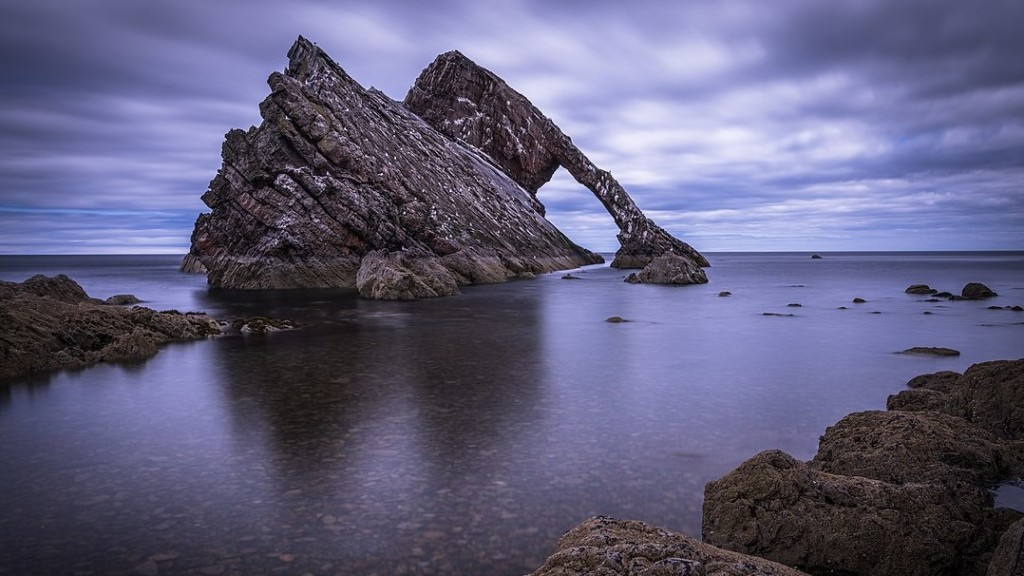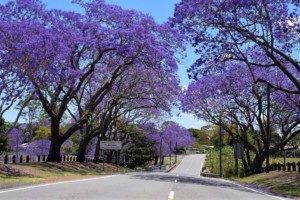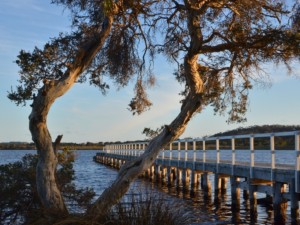Good news in tourism December 8 – 14, 2019

Welcome to The “Good Tourism” Blog’s almost famous summary of a week of good news and quirkiness — from villages to nations — in the world of travel & tourism. Published on Sunday to be ready on Monday, it’s the perfect positively-spun start to a working week wherever you are! Share it with your colleagues.
In no particular order:
Be proud! Tourism has been partly credited with the near halving of poverty rates in the landlocked southern African nation of Botswana.
The Andaman and Nicobar Islands union territory of India has ambitious plans to enhance its tourism industry. According to Chief Secretary Chetan B Sanghi in this interview, it is introducing electric vehicles; compelling all shipping services to run on green energy; converting all existing boats to electric; converting Port Blair’s 93% diesel-driven power generating plant to run on “green energy resources”; and enforcing a ban on plastics!
Kumarakom, a village nestled in the backwaters of Kottayam, is set to become the first plastic-free tourism destination in Kerala, India, in a pilot project that seeks to unite tourism stakeholders, including residents, against single-use plastics.
Community-based tourism
Democracy. With Moray Speyside Tourism being defunded, ballot papers have been issued to 420 “eligible companies” in Moray, a district in the northeast of Scotland. The vote is to determine whether a Tourism Business Improvement District should be created to which businesses would contribute an annual levy and have a say in how it is spent. This funding model would be preferable to a “tourist tax”, say supporters.
Nice problem to have. Booming revenues from a lodging tax in the city of McMinnville, Oregon, USA has prompted the council to vote to renegotiate its allocation. Currently 70% of the tax revienue must be allocated to tourism promotion and infrastructure. However the whole 70% has been going to Visit McMinnville for promotion when there are “critical infrastructure failings no amount of promotion can hide”.
Tourism was one of four main ideas that “fell together organically” during community consultation undertaken by Morden and District Chamber of Commerce in Canada’s Manitoba province. The other three were economic development, community, and transportation. And to think that tourism is often considered a junior ministry in government!
Less organically, perhaps, Vietnam Prime Minister Nguyen Xuan Phuc said Ca Mau province in the Mekong Delta should tap into responsible, eco- and community-based tourism principles.
In Thailand’s eagerness to create 300,000 “smart farmers” by 2023 — and more “community tourism” — “Deputy Prime Minister Somkid Jatusripitak has ordered the Bank for Agriculture and Agricultural Cooperatives (BAAC) to team up with the Industrial Promotion Department and the Tourism Authority of Thailand (TAT)”.
Culture & heritage
Cultural tourism in Russia is a winner during the present “golden moment” in relations between China and Russia, however the Russian Deputy Culture Minister has apparently warned of a “red danger level” as Chinese tourists crowd out others at popular sites.
“One city, three belts, one district and one circle”, whatever that means, is Beijing, China’s route to a world-class cultural tourism experience. Apparently it requires technology such as 5G, artificial intelligence, and big data among 26 measures.
Japan’s former capital Kyoto, host city for a UNWTO and UNESCO talkfest last week and a destination dealing with overtourism, “has cracked down on illegal minpaku, a type of private lodging service, and undertaken a campaign to educate foreign tourists in particular on Kyoto’s manners and customs. It has, for example, created signs asking them to be polite when asking maiko (apprentice geisha) for photos.”
The climbing ban at Uluru, the iconic rock in the red centre of Australia, has created new opportunities for the local Anangu community. So we can expect more cultural tourism experiences in Uluru-Kata Tjuta National Park, plus new Indigenous-owned accommodation.
In an effort to manage the growth of heritage tourism in its historic areas, Charleston, South Carolina, USA has amended its hotel ordinance.The revised ordinance requires, among other things, that new developments contribute to affordable housing for Charleston locals.
Billions of tourist dollars every year are thanks to the 30-year-old Pennsylvania Heritage Areas Program, an economic development program rooted in the rich natural, cultural, and industrial history of the USA state.
In pre-empting research he thinks is required to better develop and promote tourism, Nepal’s Minister for Culture, Tourism and Civil Aviation Yogesh Bhattarai has identified the need to develop a cultural and religious circuit.
A newly refurbished medieval church in the small market town of Llanrwst in Conwy County Borough, Wales has hired a business development officer with a “passion for tourism, heritage, and faith”. Jon Richmond, who once worked for North Wales Tourism, says he is looking forward to working with the community to show off the town’s heritage.
Ecotourism & wildlife
The Tasmanian state government in Australia has engaged consultants to study the economic value of nature-based tourism with the goal of making Tasmania “the ecotourism capital of the world”.
An aging caravan park in Western Australia’s coastal Ningaloo World Heritage area will be turned into a luxury ecotourism resort by mining billionaire Andrew “Ziggy” Forrest who will market both the resort and tours of his cattle station (ranch) to Asian tourists. He also plans to spend millions on marine research.
Wildlife tourism’s increasing popularity is encouraging because it facilitates conservation activities, according to Rajnish Singh from the Madhya Pradesh Forest Department in India.
Pull on your boots. Columbia’s Gorgona island, formerly home to a maximum-security prison and still home to its infamous venomous snakes, is a new ecotourism destination.
Reopening. The ecotourism reserve of “El Corchito” in Yucatán, Mexico reopened December 9. It had closed for two months due to an “increase in the sea level that caused the recreational areas and corridors to flood”.
What does ecotourism in a major city like London, UK look like?
Odds & ends
Newsy bits that don’t easily fit into this week’s arbitrary clusters:
Barbados Minister of Tourism Kerrie Symmonds has hinted that accommodation providers in the Caribbean island nation may soon be required to make their products fully accessible.
At the intersection of community-based tourism, cultural & religious tourism, and ecotourism, this tidbit: villagers in the state of Odisha in India are calling for the development of tourism on Barnei mountain. A sage once lived on the forested mountain, where there are two waterfalls and lots of bananas and mangoes to eat, but if you bring fruit from the top of the mountain to the bottom it (or you?) will turn to stone. The stream water is believed to be medicinal. And there is a naturally-arisen Shiva Lingam, apparently. Put it on your bucket list!
Featured image: Bow Fiddle Rock, Portknockie, Moray, Scotland. By Markus Trienke (CC BY-SA 2.0) via Wikimedia. “GT” cropped it.
P.S. None of these items have been fact-checked. Please comment below if you know there has been rubbish posted here, but be nice about it. The linked sources might get offended (“GT” won’t). And there’s no need to harsh the vibe by being nasty.





